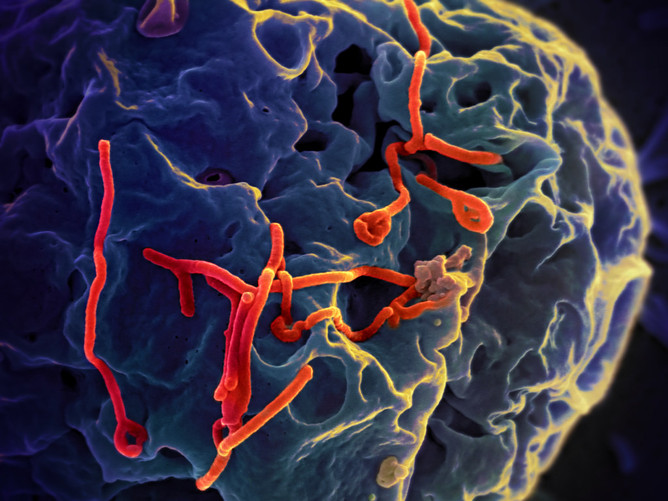As much as last summer’s Ebola outbreak was politicized after it hit American shores, it left a significant deal of damage at its epicenter in West Africa, responsible for the deaths of tens of thousands. Although several treatments have been proposed, the question is whether such an event could happen again. As climate change brings about warmer temperatures into new regions, some researchers that it may be carrying tropical diseases to new places, and ignite a series of global epidemics.
Ebola and that much unwelcome staple of summer known as the West Nile virus are only two prime examples of invasive pathogens brought to new places. Zoologist Daniel Brooks and his team propose that the rising sea levels and increased warm weather leave us much more vulnerable than we realize, in a new paper he published in a British research journal.
You might wonder why a zoologist is so concerned with global warming – but the answer is pretty apparent, and further reinforces the impact that climate change has on most bodies of science. One of the prime symptoms of climate change has been the migration of species to new regions – such as South American birds recurring in more temperate forests. These species often bring parasites with them, capable of infecting new species – either affecting humans directly or through species we may use as a food source.
“Climate change does result in species moving around, and with respect to pathogens those movements actually create an enormous number of opportunities for parasites to jump into hosts they’ve never seen before,” said Brooks in an interview with VICE News.
Prior to Brooks’ work, many researchers thought parasites were specific to only one species. The new study, however, demonstrates a number of instances in which parasites successfully transitioned themselves onto other, similar organisms. One that affects rodents could just as easily infect other kinds of rodents — and would be successful because the new host has not had the evolutionary advantage of developing resistance.
Brooks’ specialty is reconstructing genealogies of species. His work brought him to investigate the last 30 years of related research and even his previous work in identifying vector-borne diseases, some of which date back to the last Ice Age.
“These host switches don’t happen at random. They’re actually clumped at particular times,” said Brooks. The end of the last Ice Age was particularly disastrous for a number of animals after the glaciers melted, increasing sea levels and driving species to higher grounds.
The West Nile outbreaks in the early 2000s are a prime warning of what could happen – their presence being detected by songbirds as they made their way across the Western Hemisphere. Although the songbirds began developing resistance rather quickly, people have not, and the virus is now considered a chronic illness for those affected. The parasite, however, remains, continuing to evolve.
So what is the best way to avert any potential outbreaks? “As long as we think of ebola as a human-to-human problem, we’re missing the possibility that if some non-human picks up ebola we never get rid of it,” Brooks continued. “We need to pay more attention to natural history.”
At some time in the not too distant past, AIDS was a simian virus before it managed to cross species. Not much was known about phylogeny at the turn of the twentieth century, but today focusing on the pathogens in animals and their genetic history might be beneficial.
Salvatore Agosta, an assistant professor at Virginia Commonwealth’s Center for Environmental Studies, supported the paper’s claims, as parasites are a great deal more adaptive than previously thought. Another prime example is Lyme Disease – once known only in the American Midwest but in the last several decades it moved not only to the Northeast but south as well.
Ben Beard of the CDC also agrees: “The simple statement is that changes of climate will affect the environment,” he told VICE News. “What’s more difficult is to say precisely where and how.”
As critical as predicting where and how any potential outbreaks will happen is to the CDC, it often receives the least amount of attention due to its speculative nature, further complicating the problem of migrating and invasive species. Texas, in particular, has withstood several epidemics of mosquito borne illnesses – many of which, such as chikungunya, are still relatively mysterious to many health care professionals.
The CDC was hit by budget cuts last year, which significantly affected the state’s trouble with tackling the number of Ebola cases it confronted over a short period of time.
|
James Sullivan
James Sullivan is the assistant editor of Brain World Magazine and a contributor to Truth Is Cool and OMNI Reboot. He can usually be found on TVTropes or RationalWiki when not exploiting life and science stories for another blog article. |

